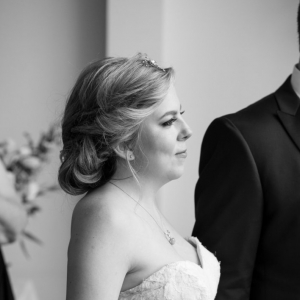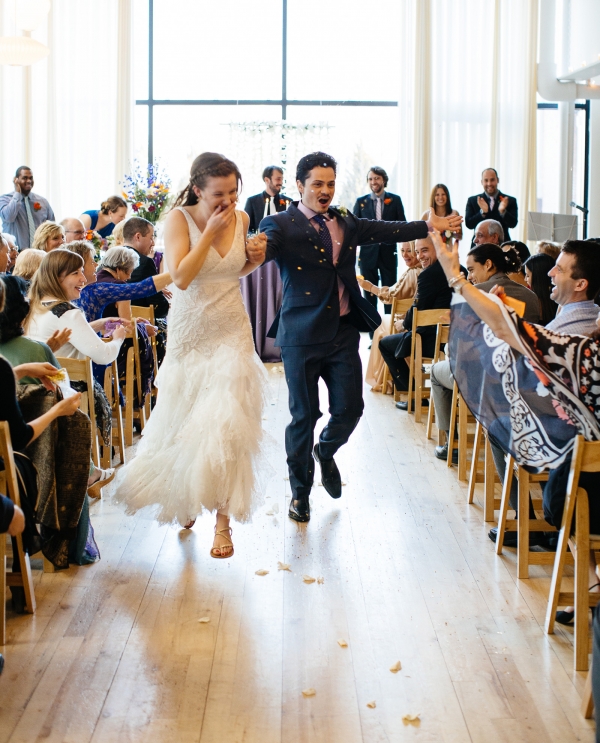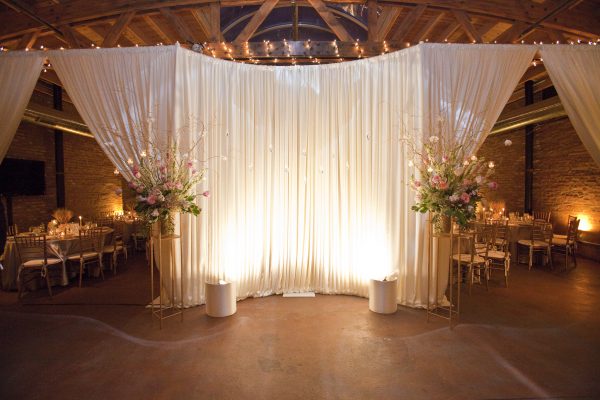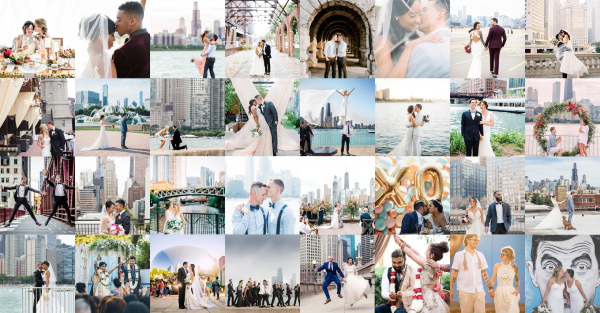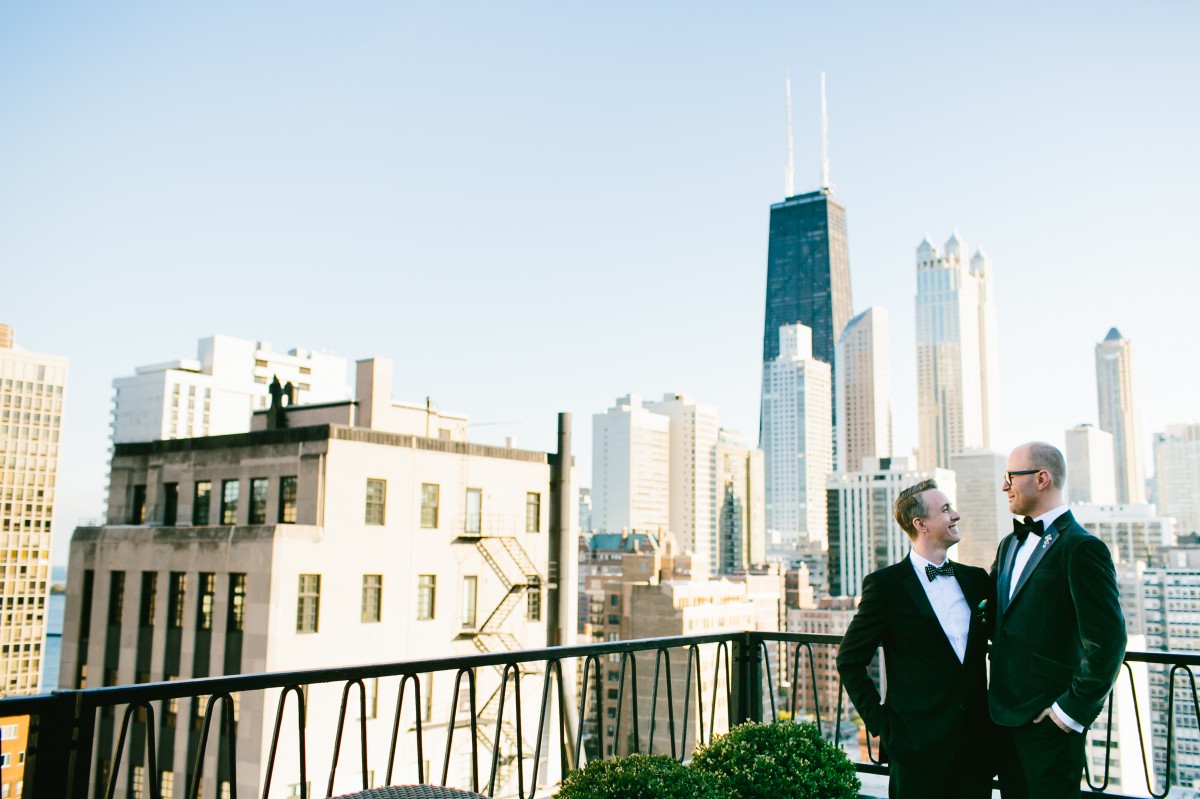Inclusion and accessibility are an essential aspect of successfully executed weddings and events. While most will agree that planning an accessible wedding is important, and that event hosts should prioritize experience and the comfort of their guests, the needs of ALL guests can and should be intentionally considered throughout the entire planning process. Too often, engaged couples, wedding vendors and guests find themselves in potentially uncomfortable situations when trying to problem solve issues that pop up around accessibility and inclusion, as opposed to incorporating an inclusive mindset from the get go.
Let’s get real for a second: 1 in 4 people have a disability, as defined by U.S. census data. That number becomes much higher if we factor in those with injuries (your klutzy groomsman who broke his toe while moving for example), the elderly (deteriorating vision, hearing & mobility), loved ones with dietary restrictions, or those who are experiencing health concerns you may not be privy to. Chances are, many of your guests will need some form of accommodation.
In an effort to get you thinking, I put together some tips for ensuring that your wedding is inclusive and accessible for guests with disabilities or those with specific accommodation needs.
By no means is this an exhaustive list. My advice is to think about a person’s experience from beginning to end, and do your best. If the answer to some of these questions is no, don’t fret! Problem-solve ahead of time and get creative. Pro tip: A quality wedding coordinator will be able to easily work through any curve balls before and during you wedding to ensure that you and your guests have an incredible time at your wedding!
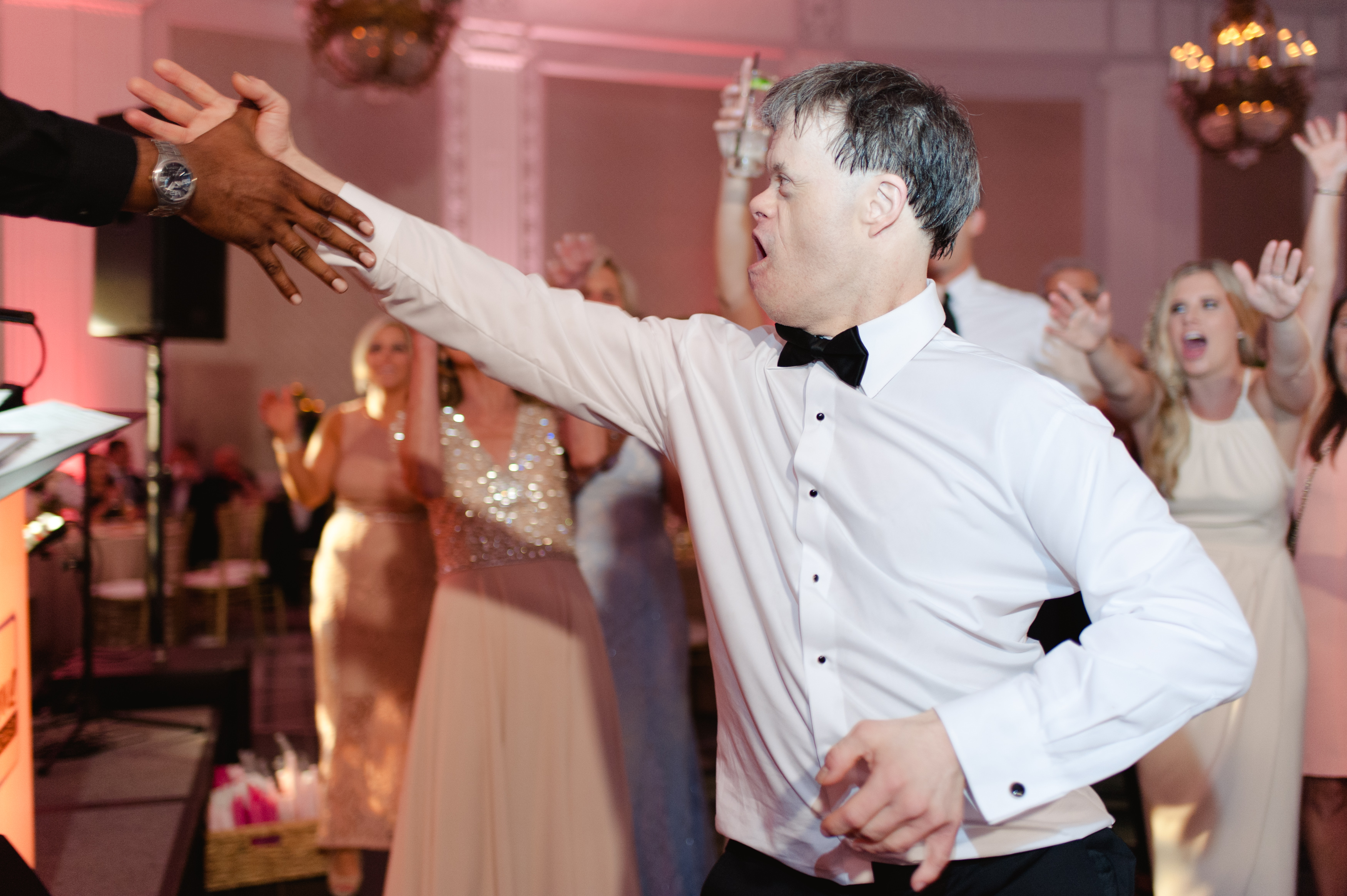
Determining Your Guests’ Needs
Speaking from my own personal experience having a physical disability, I cannot express how meaningful it is when those around me anticipate an accessibility need I may have or thoughtfully ask what they can do to help. It shows empathy and validation of the lived experiences I (and other people with disabilities) carry every day.
- Don’t be afraid to reach out to guests directly to ask what their needs are.
- Ask if your guest has any thoughts on seating, need interpreter services, support with lodging or transportation, or have any dietary restrictions.
- Provide ample information well in advance so people can plan their participation at your event.
- Put a note on your website and/or in invitation suite (more on that below).
Venue Accessibility
When selecting your venue, think about the physical space. Asking a venue if they are “handicap accessible” isn’t enough. A federal law, the Americans with Disabilities Act (ADA), requires most business and facilities to provide reasonable access and accommodation for all disabled customers, clients, and members of the public. While this has proven monumental for inclusion efforts of the disability community, ADA requirements for existing facilities built before 1993 are far less strict than for ones built after 1993 or modified after 1992. As a result, one cannot assume “handicap accessible” has a universal meaning.
Here are some things to consider when touring a venue:
Primary Entrance Accessibility
- Is it level or ramped? Does it have either an accessible door or automatic door opener?
Dignified Entrances
- Does this space have access points that every guest can enter & exit, regardless of physical ability?
Working Elevators
- Is there someone on staff that can manage issues if the elevator isn’t working?
Accessible Bathrooms
- While many spaces may technically comply with the ADA, some spaces still won’t work for some.
- Do they have stalls wide enough for a power wheelchair, scooter or service animal to fit?
- Are there automated door openers and grab bars?
Parking
- Does the venue have accessible parking and an accessible drop-off area?
- Consider scenarios of guests in modified vehicles. (Challenges with others driving their car, issues with under staffed parking garages, etc.)
Outdoor Spaces
- Does the path of travel to the venue present barriers?
- If any activities will be held outdoors, does the space offer access for all participants?
Food Service Options
- Can the venue provide tables of different sizes for cocktail hour?
- Food & beverage stations may be out of reach for some and family-style service may provide challenges so ensure staff are prompted to help if needed.
Inclusive Seating
- Consider the path of least resistance without just sticking someone in a back corner. Every human wants to sit where it is comfortable and convenient with good lines of sight, right?
- Don’t forget companion seating, if applicable.
- If the guest is in a wheelchair, have the venue remove their seat ahead of time. Make sure the seat is positioned to see the couple/speeches.
- Deaf individuals may want to be seated by the speakers or dance floor so they can hear the vibrations and are also closer to the front where the ceremony or speeches will be.
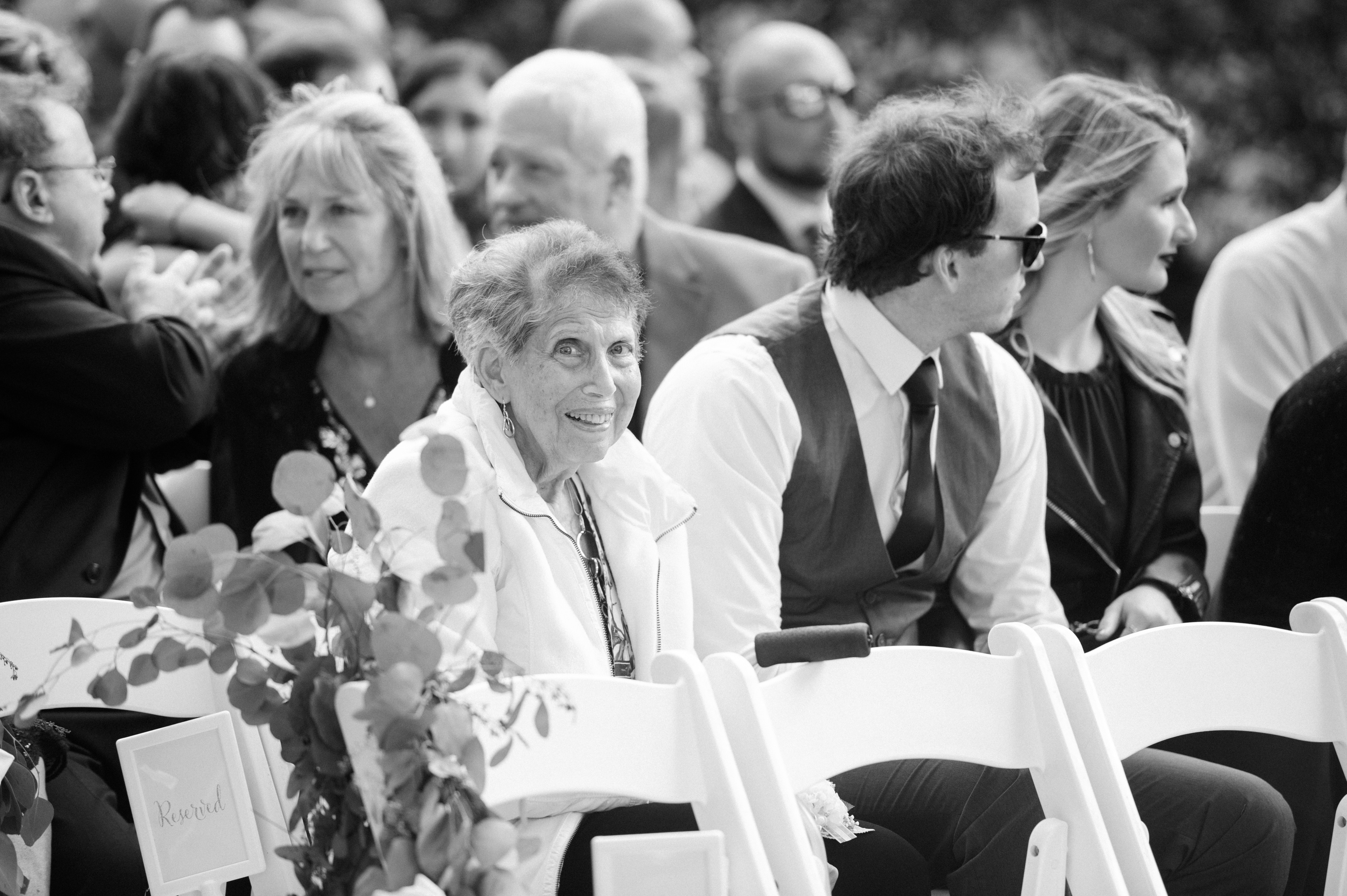
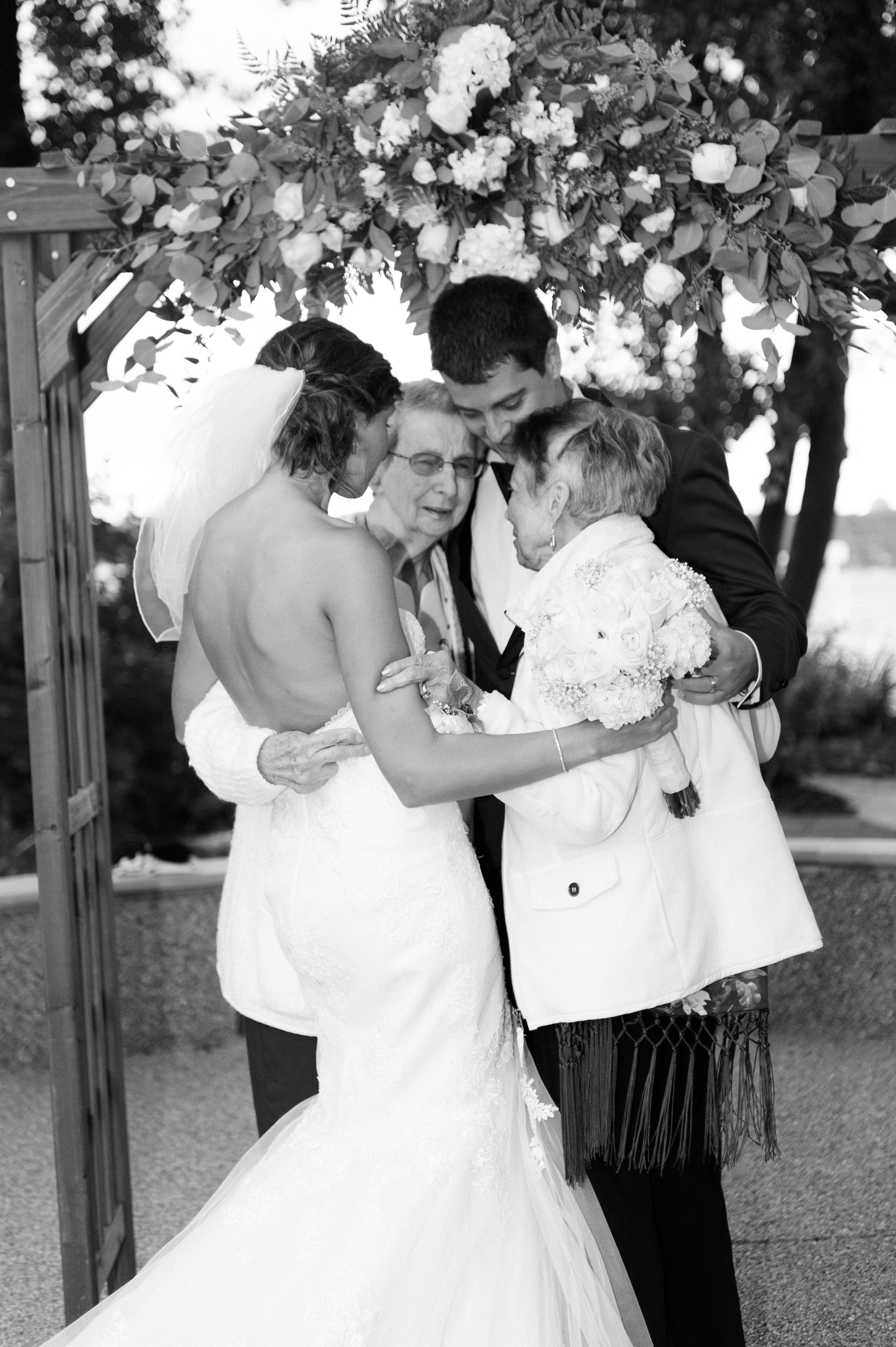

Paper Goods & Readability
Set the tone of inclusion from the get go by requesting accommodation information in your invitation and/or include a section in your wedding website where guests can connect with you. Be aware that certain types of calligraphy and colors make it hard for many people to read, and to avoid this, you can use large text (16 point font minimum) in a Sans Serif font such as Arial, Verdana or Tahoma.
Here’s a great example by stationer Emily Rose Ink to help illustrate!
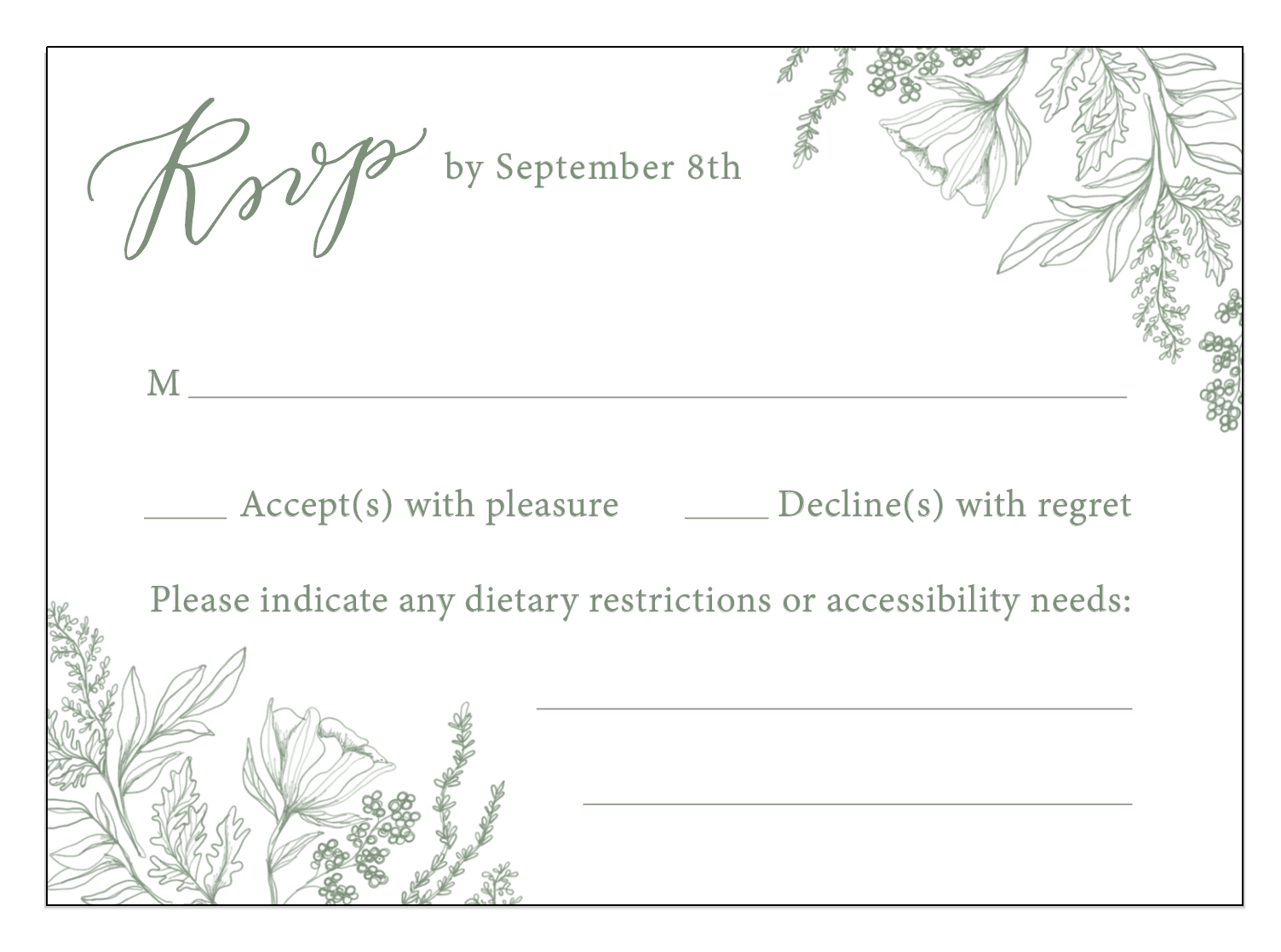
For guests who are blind or have limited vision, consider having your stationer create your invitation suite, program, etc., in large print or braille.
- For more advice on making print more readable, refer to: The American Foundation for the Blind
- To read more on accessible invitations visit: Offbeat Bride
Hotel Accommodations
Since hotel rooms vary in their compliance with Americans with Disabilities Act (ADA), we have to do our due diligence when asking for accessible rooms. Some things to think about:
- Refer back to the section in this article on checking in with guests about their needs. If you suspect someone may need an accessible room, circle back and ask for specifics and if they need help. Since this is unlikely their first rodeo, many people will arrange their own accommodations to meet their needs but some family and friends may need some help!
- Ensure hotels have sufficient and appropriately accessible rooms. You would be surprised by how often this gets overlooked! Things to consider: roll in showers, the height of the bed and sink, etc.
- If you can, inspect accessible guest rooms during site visits to make sure they actually provide what is needed.
Transportation
Accessible transportation is imperative and can often be a barrier to inclusion for those with disabilities and physical challenges. Whether you have a person with an accommodation need in your wedding party or are trying to work out getting a guest to and from the airport, don’t take a company’s guarantee that they are accessible at face value. Once you determine the level of transportation support needed, ask clarifying questions:
- Do you have vehicles or a fleet that can transport a foldable wheelchair?
- Can your staff operate lifts and ramps?
- Do you have vehicles with a ramp or lift? (For individuals with power chairs or scooters)
- Are drivers trained to assist people who are deaf, hearing impaired, blind or who have low vision?
- Are accessible shuttles conveniently located?
Transit options in Chicago:
- Lyft Access Mode – In the Lyft app, enable by clicking Settings > Services > Access. Per Lyft, in Chicago, accessible vehicles are dispatched in real-time.
- UberWAV – While in the app, swipe right for the Uber Wav option. You may want to call the Uber once you request to verify what type of vehicle they have. Per Uber, every uberWAV driver has completed a certification course to assist with vehicle entry and exit.
- Greater Chicago Transit
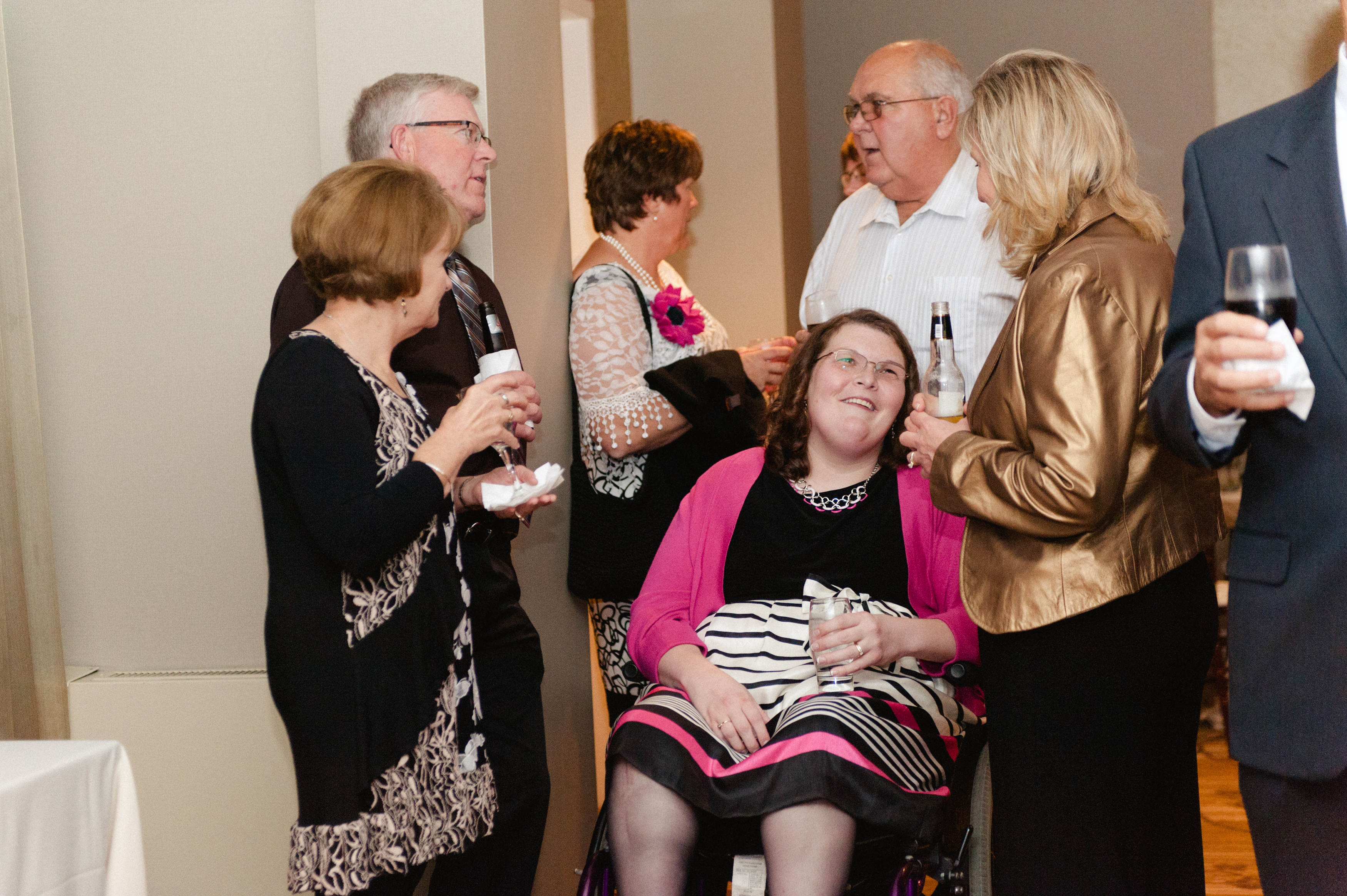
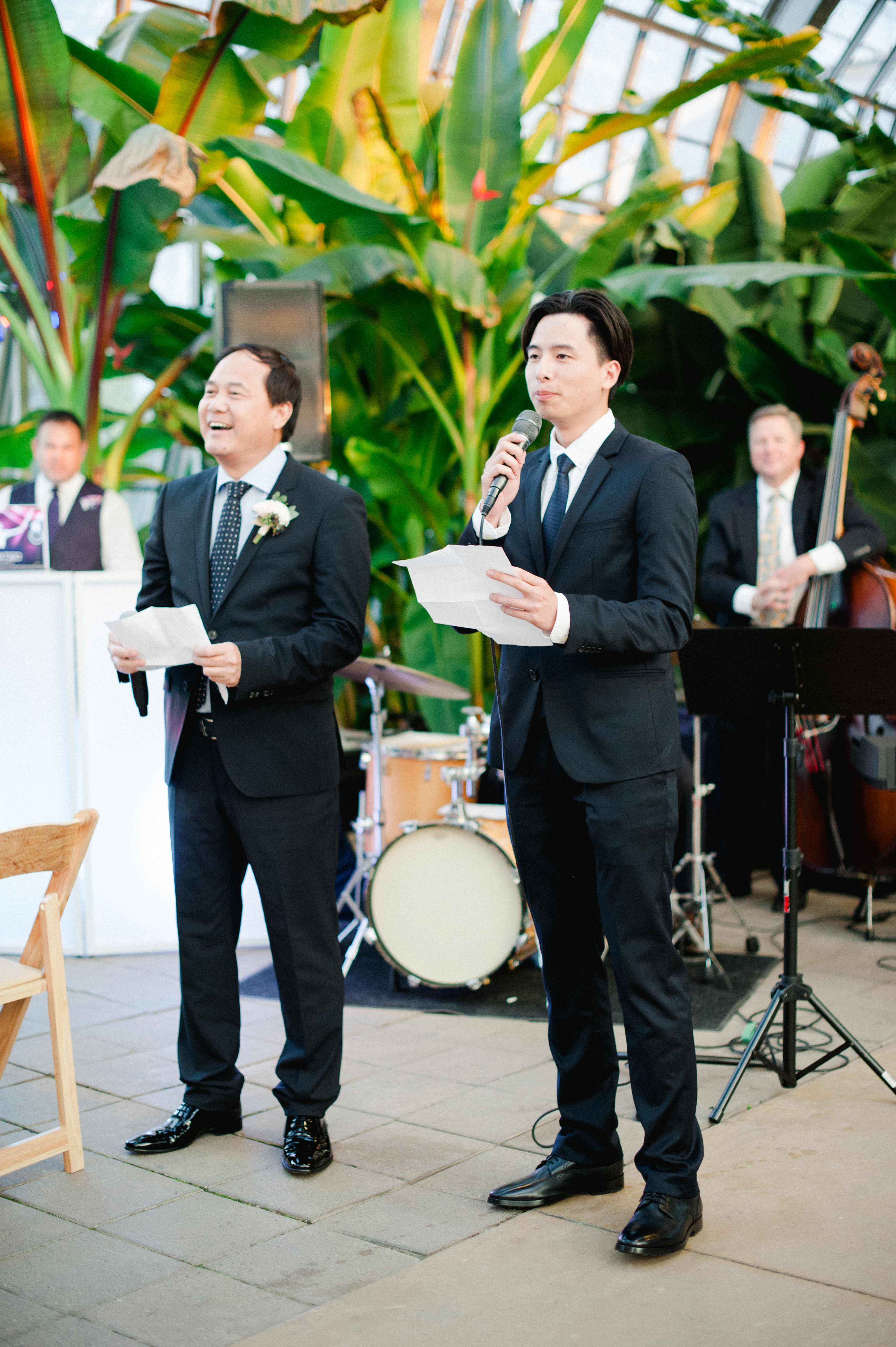
Speeches & Toasts
- Be thoughtful about access ramps, microphone height, and lecterns or podiums if people are being invited on stage or will be giving a speech.
- Consider real-time captioning, assistive listening systems or sign language interpreters.
- Ensure any interpreters are clearly visible.
- Brief speakers to face the audience and interpreters, to always use the microphone and avoid speaking too quickly or quietly.
Chicago Resources for Sign Language Interpreters:
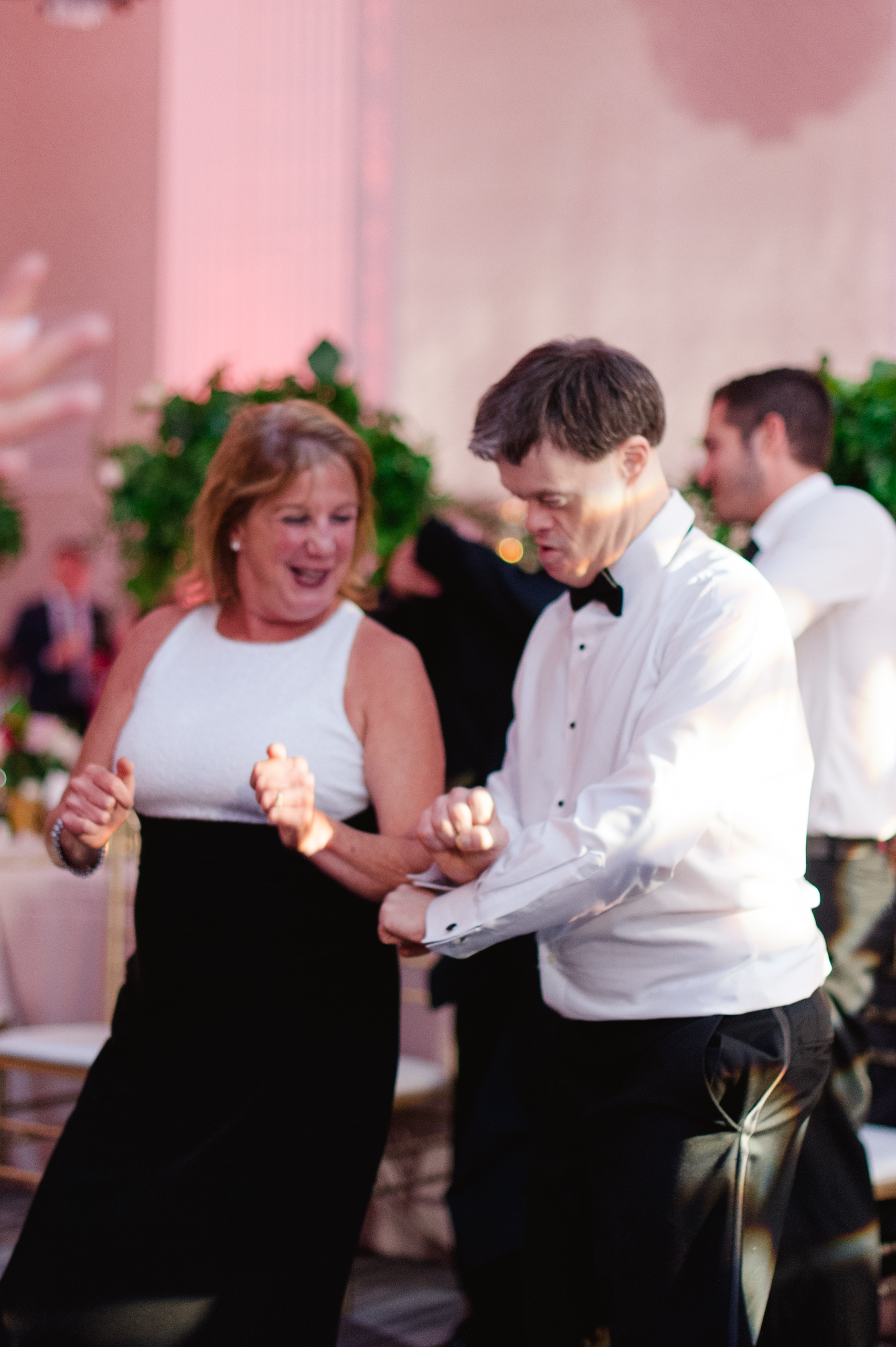

I hope that this has given you some helpful information! Your guests will be so grateful that you were attentive to their needs.

